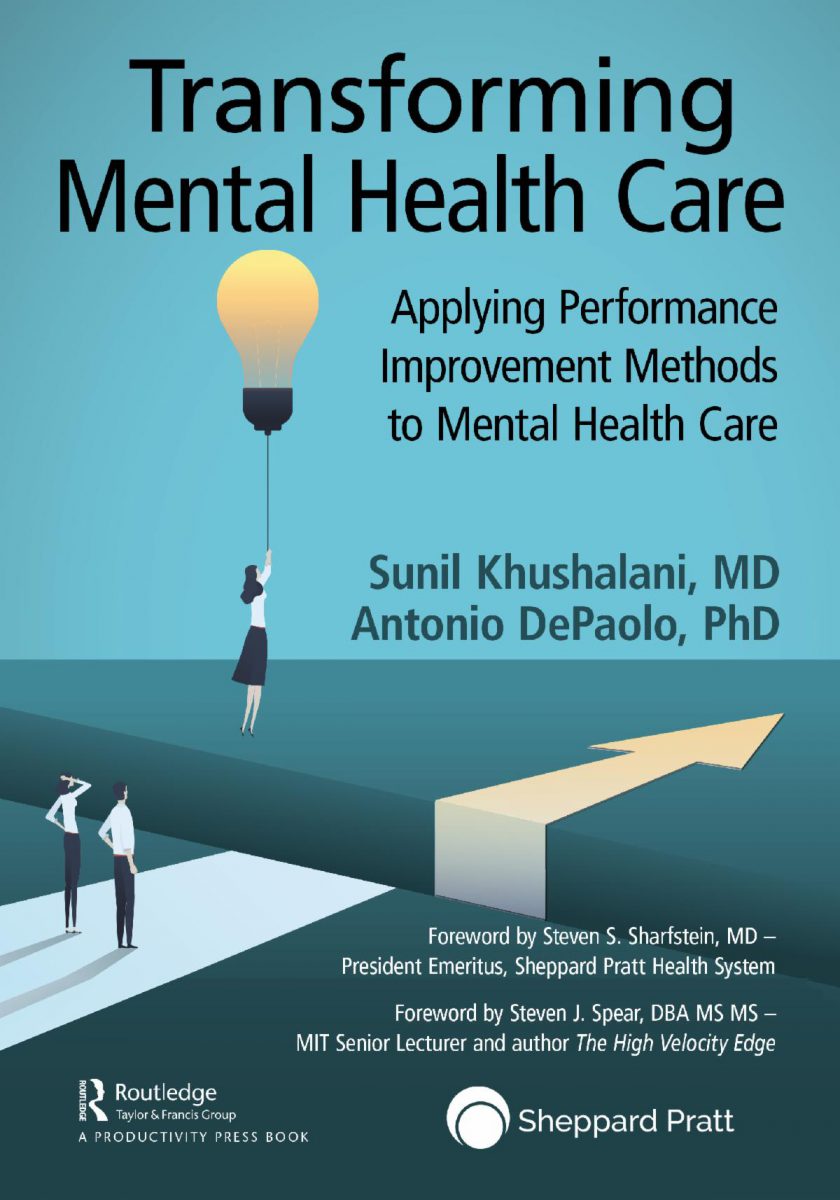
| Sunil Khushalani MD and Antonio DePaolo PhD with forewords by Steven Sharfstein MD and Steve Spear DBA I’m delighted to share news that Transforming Mental Health Care by Sunil Khushalani and Antonio DePaolo has been published. It’s an important work about important work. I’m sharing, below, the foreword for which I had the honor and privilege to write. Some links are below that to other materials that might be of interest. —————————————————– We fear that those about whom we care will suffer from malady. We all hope that should they be in distress something will provide cure, at best, or comfort and dignity at the least. Our own emotional equilibrations—as friends, family members, care providers, or supporters—often depend on having a tangible cause to make sense of a situation, something onto which we can assign blame and at which we imagine a treatment can be directed. Physical maladies at least (often) offer that clarity of cause and effect, even as they have their perfidious influence. That is why it is rare for the orthopedic patient to be judged for inabilities associated with an injury, nor is a neurological patient judged for the consequences of stroke. But with mental health issues, there can be a doubling down by the affliction. Invisible in their cause though consequential in their impact, they often don’t have the decency of offering outward obviousness of cause and effect, especially not at first. Instead, early inklings of difficulty—for both patients and those who care about them—are too easy to dismiss as problems of character, rectitude, discipline, maturity, and the like. So, just when there should be concern and comfort, first reactions—judgmental and dismissive—can only make matters worse. That the wounds are often invisible as are the agents that created them makes the work of mental healthcare professionals all the more difficult and all the more important for our individual and collective well-being. They labor against something the rest of us cannot imagine, nevertheless providing the care, comfort, and cure we so desperately seek yet can never truly envision. It’s in this context that Transforming Mental Health Care: Applying Performance Improvement Methods to Mental Health Care should be welcomed and Sunil Khushalani and Antonio Depaolo should be praised. Writing with a tone sympathetic and respectful of patient and provider alike, they recognize the sheer complexity of ‘systems’ through which care is provided by harmonizing the contributions of many specialists towards common purpose, they explain how such complexity can express itself as obstacles and obstructions to the good intentions of those doing their very best, and the authors demonstrate how such complexity can be managed better so acts of giving care can be more collectively graceful, generating more reason for individual and shared gratitude. In effect, they urge that the same disciplines of observation, examination, investigation, intervention, and follow-up that clinicians exercise in helping patients be applied to the systems in which those same clinicians are imbedded and through which they express their upmost professionalism and humanity. It’s in this light of description, critique, and prescription that the many poignant vignettes throughout Transforming… can be read as far more than alarming. The authors’ promise is that such vignettes are avoidable and need not recur. Framed that way, we seem them as admonishment to do better because better is possible. Rather than infuriating, they can be read as inspiring. It is my hope that this loving work and the loving work it addresses be information and inspiration for better experiences for all concerned. With appreciation for those who bring light to those walking in darkness. Respectfully, Steven Spear DBA MS MS Principal, See to Solve LLC Senior Lecturer, MIT Sloan School of Management Senior Fellow, Institute for Healthcare Improvement Author, The High Velocity Edge Brookline MA June 2021 |

| Click here for chapter 11 of The High Velocity Edge, how improvement methods had phenomenal impact in medical care. Click here for info about our executive education course at MIT, “Creating High Velocity Organizations,” next offered live on line Nov 11 and 12. |
Read Other Articles: How To Keep From Going Offtrack and Out of Whack; Don’t Overthink—The Four Steps to the Epiphany
